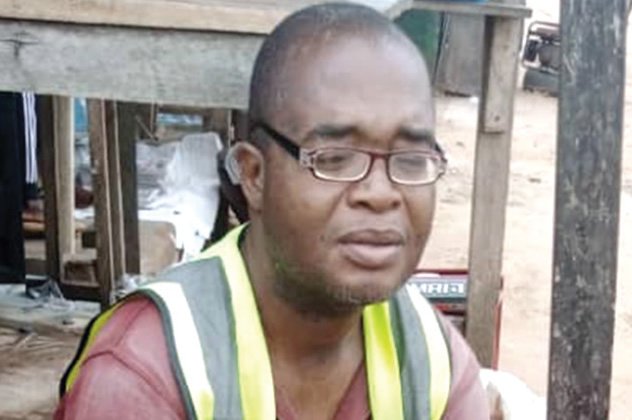An Asaba, Delta State-based newspaper vendor, Mr. Patrick Onwanaha, has recounted a harrowing experience with the Nigeria Police Force.
He said that he was initially picked up by the Department of State Services (DSS) on May 14 and detained for selling Biafra newspapers.
“I was doing my usual newspaper business as a vendor along the streets of Asaba when I saw where people gathered in the Arcade event centre,” Onwanaha told Sunday Punch.
“I entered there to sell newspapers when I saw some of my DSS friends at an event there. I greeted them as usual because anywhere there is a function in Asaba and its environs, especially government functions, I use the opportunity to sell my newspapers. So, most of the security personnel know me very well.
“One of the DSS officers told me to give him a copy of a newspaper as a Sallah gift. In the process of giving him the newspaper, he saw a copy of a Biafran paper and demanded it. He said he preferred to read the Biafran paper, so I gave it to him. One of them whispered to him and he started making a call. After the call, he said their oga (boss) wanted to see me. They ordered me to enter their vehicle and I did without arguing with them because my conscience was clean.”
Read Also: Fuel subsidy stopped refineries from working – Buhari’s govt
He said that on getting to the DSS office, he was accused of being a spy for the Indigenous People of Biafra (IPOB).
Onwanahas said he rejected the accusation and told the DSS officials that he was just a newspaper vendor.
The vendor said the DSS officials told him to write a statement and he told them he could not write but could read.
He said one of the officials wrote a statement for him and he signed it.
“I was thinking the DSS officers would take me back to the place they brought me, so I would continue selling my papers, but they took me to the police headquarters and handed me over to the anti-kidnapping unit. On Friday morning, the police brought me out of the cell and the Investigating Police Officer, one Sunny, told me to write a statement, and I still told him that I cannot write but I can read. So, he (IPO) wrote the statement and asked me to sign, I told him that I will read what he wrote first before I sign. But he said I could not read it, and forced me to sign.
“After signing, I begged him to allow me to call my wife to know where I was. That was when I informed my wife that I was at the police headquarters. A few days later, they brought me out, used a big rope to tie my hands and hit me with a baton even when they knew I was sick. They said my members bombed police stations and killed policemen but I told them I was not a member of IPOB, that I was just an ordinary newspaper vendor. So, they asked for the chairman of the Newspaper Vendors Association and the person who allocated newspapers for sale, and I gave them the names,” Onwanaha said.
He added that he was accused of being the publisher of the paper, an allegation he said he denied.
“The police said I was the one printing the Biafran paper and I told them I wouldn’t have been poor if I was the one printing the paper. Linking me with the IPOB was very wrong.
“Even the police said though I was a well-known vendor in Asaba, they would still punish me and kill me. After beating me, one of the officers begged them to untie me but they refused, saying I was as good as a dead man.
“They carried me back to the cell with my hands tied to my back. I stayed there until Monday evening and I couldn’t bear it again as I was almost dying, I started shouting in the cell up to a point where I found it difficult to breathe.
“That was when the IPO told my cellmates to untie me.”
Onwanaha explained that he regained his freedom with the help of a Good Samaritan police officer and a compassionate judge.
“It was on May 20 that one officer who visited the cells brought me out and asked me why I was there. I explained to him.
“By the time he saw my hands, after they untied me, he shouted. He called a doctor at Federal Medical Centre to come and treat me.
“Then, on Tuesday, 25 May, I was taken to the court. When we got to court, immediately the judge saw my hands and asked me what happened, I also explained to him, and the judge granted me bail immediately to go for treatment and come back to court on June 8. It was a bad experience.”



Leave a Reply